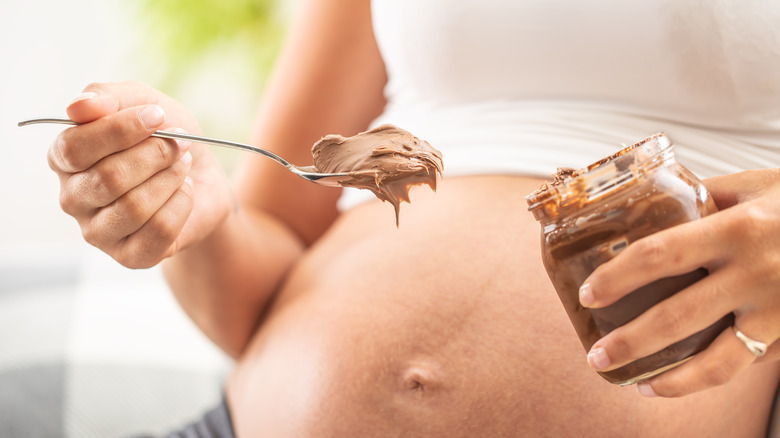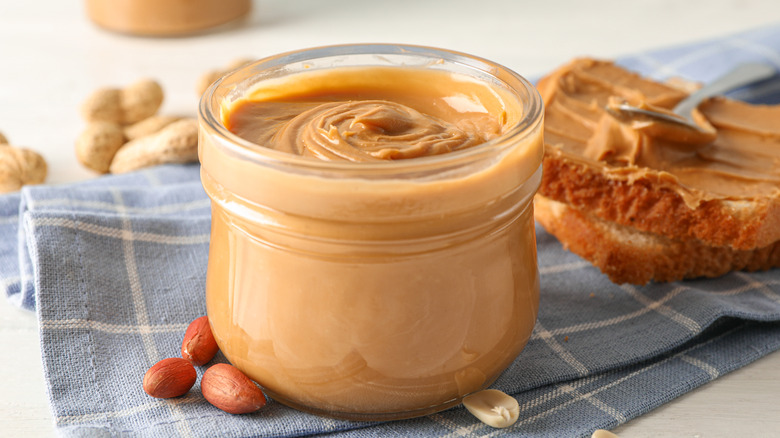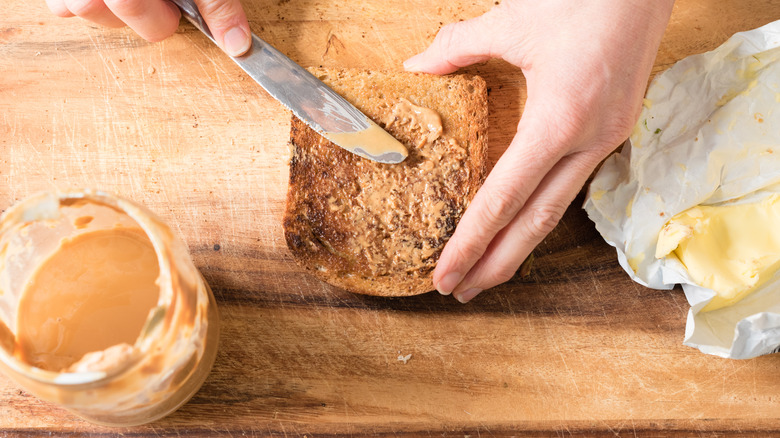Can You Eat Peanut Butter While Pregnant?
With its distinctive flavor, peanut butter makes a great addition to smoothies, oatmeal, and homemade desserts. Plus, it's rich in protein and heart-healthy fats that fill you up quickly. One serving provides more than 7 grams of plant-based protein, 7 grams of carbs, 1.6 grams of fiber, and 16 grams of fat, including omega-3s and omega-6s. Both protein and dietary fat increase satiety, making it easier to control your food intake.
This delicious treat does more than just keep hunger at bay. Studies suggest that peanut butter consumption may improve memory and reduce anxiety, according to the journal Clinical Nutrition. On top of that, it may alleviate depression and enhance our ability to cope with stress. Research also indicates an inverse association between peanut butter intake and diabetes, reports a large-scale study published in JAMA. The unsaturated fats in nuts may improve insulin sensitivity, while fiber, magnesium, and other nutrients protect against insulin resistance.
Given these aspects, it makes sense to eat peanut butter every day. The problem is that many otherwise healthy foods may not be safe during pregnancy. For example, an earlier study featured in Pediatric Allergy and Immunology states that children born from women who consumed peanuts while pregnant are more likely to develop a peanut allergy. Other studies, however, came to a different conclusion or had conflicting results.
Is it safe to eat peanut butter during pregnancy?
Peanut butter contains several key nutrients that support pregnancy health. A single serving, or 2 tablespoons, boasts 7% of the recommended daily folate intake, according to MyFoodData. This vitamin protects against neural tube defects and helps your body produce red blood cells. When consumed in adequate amounts, it may prevent maternal anemia, preterm birth, and other conditions that can affect the mother or baby, explains the American Pregnancy Association.
But despite these potential benefits, many experts say that peanut butter may not be safe for moms-to-be. Along with milk, soy, eggs, and fish, peanuts are among the most common allergens, says the FDA. Until recently, it was believed that maternal peanut consumption may increase the risk of nut allergies in children. However, there's not enough evidence to support these claims, notes a 2018 review published in the Canadian Medical Association Journal. Avoiding peanuts and other food allergens during pregnancy could actually result in preterm birth and other issues.
"Mothers don't need to avoid any of these allergic foods. If anything, they might be beneficial," neonatologist Frank R. Greer told WebMD. A large-scale study conducted on more than 8,000 women and babies found that maternal nut consumption may lower a child's risk of food allergies, reports JAMA Pediatrics. Therefore, there's no reason to limit peanut butter during pregnancy unless you're allergic to it.
Peanut butter can be a healthy choice for expecting mothers
Peanut butter is a healthy snack that is good for both the mother and baby and has its place in a balanced diet. In addition to folate, it boasts large amounts of vitamin E, niacin, iron, phosphorus, manganese, copper, and other nutrients, reports MyFoodData. Vitamin E deficiency, for example, may increase the risk of low birth weight and preeclampsia, a condition that causes high blood pressure in expecting mothers, notes a 2015 review published in Cochrane. Just one serving of peanut butter provides nearly 20% of the recommended daily amount of vitamin E.
Peanut butter also delivers high doses of omega-3s. These fats support fetal development and may help prevent depression in pregnant women, according to 2010 research published in Reviews in Obstetrics and Gynecology. What's more, a diet rich in omega-3s may reduce the odds of preterm birth, though more studies are needed to confirm it. Magnesium, another key nutrient in peanut butter, may prevent preterm contractions, suggests a 2016 research paper featured in Nutrition Reviews. This mineral also relaxes the muscles and can help relieve leg cramps, a common complaint during pregnancy.
Note, though — peanut butter is high in calories and should be consumed in moderation. Ideally, look for sugar-free varieties with as few ingredients as possible, recommends Food and Nutrition Magazine. Also, check the label for palm oil, high-fructose corn syrup, jelly, and fillers. Beware that reduced-fat peanut butter may contain sugar or starches for extra flavor, so it's best to avoid it.


